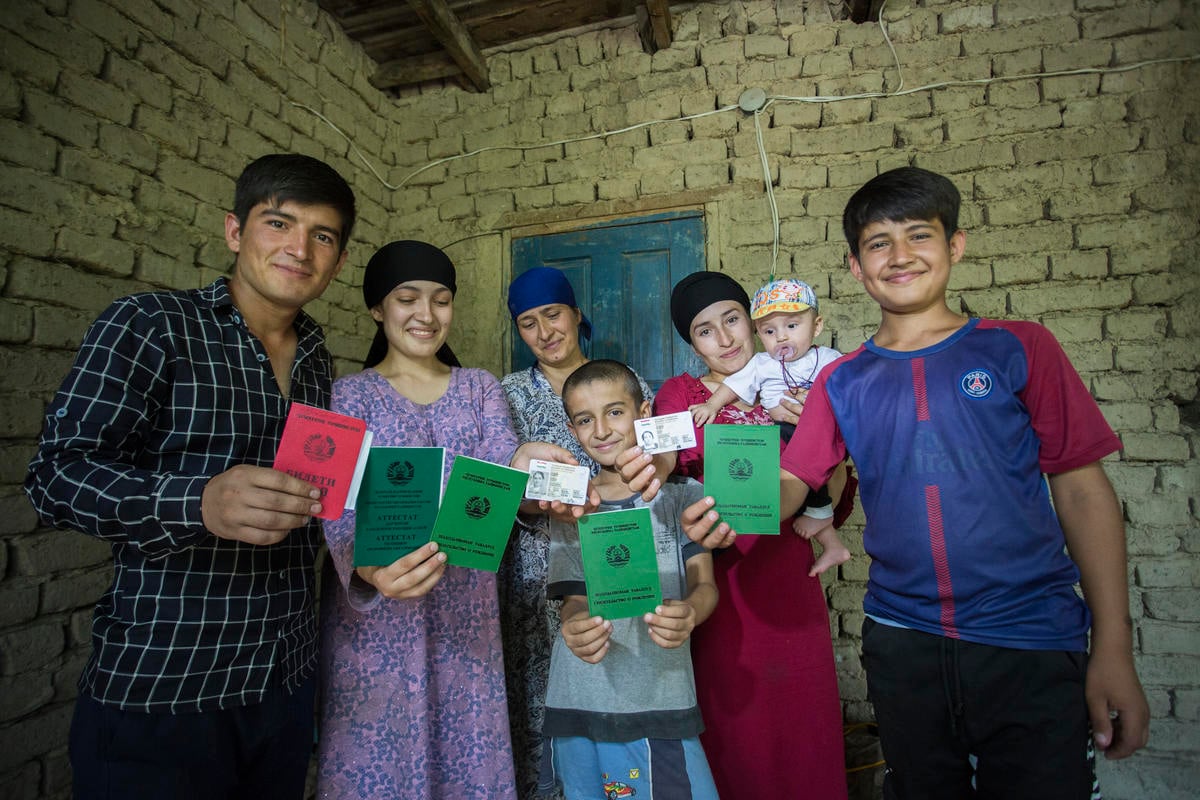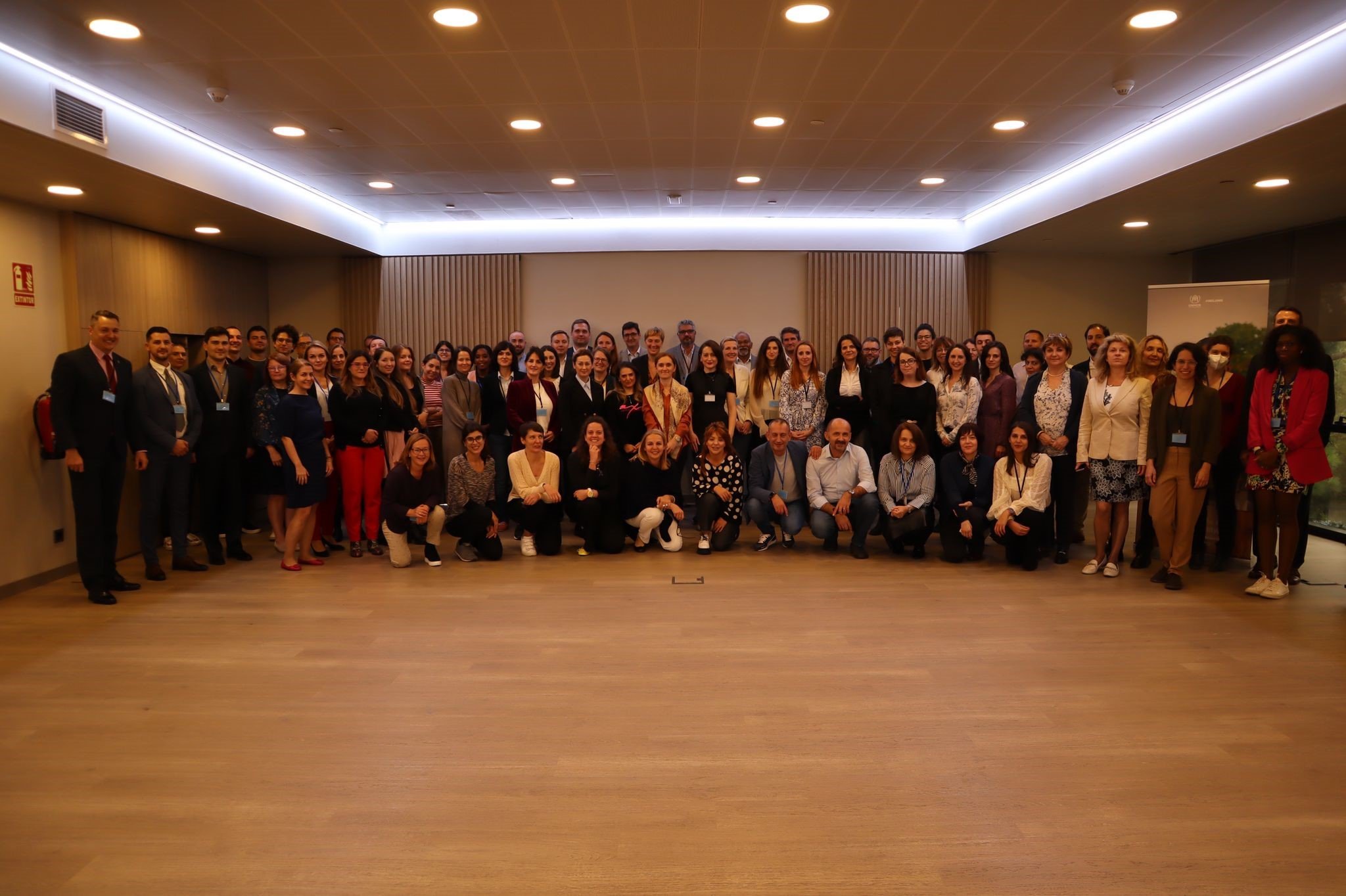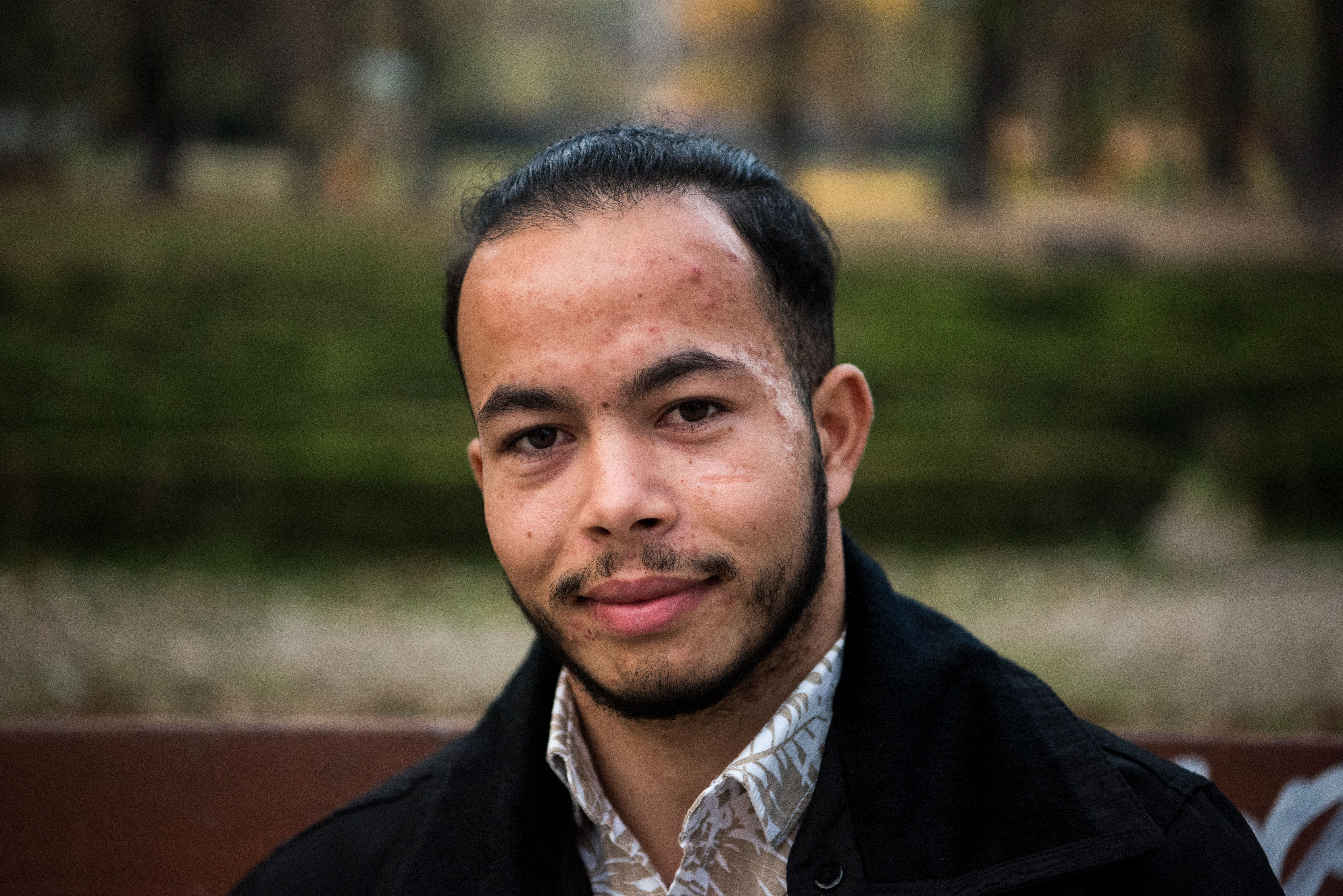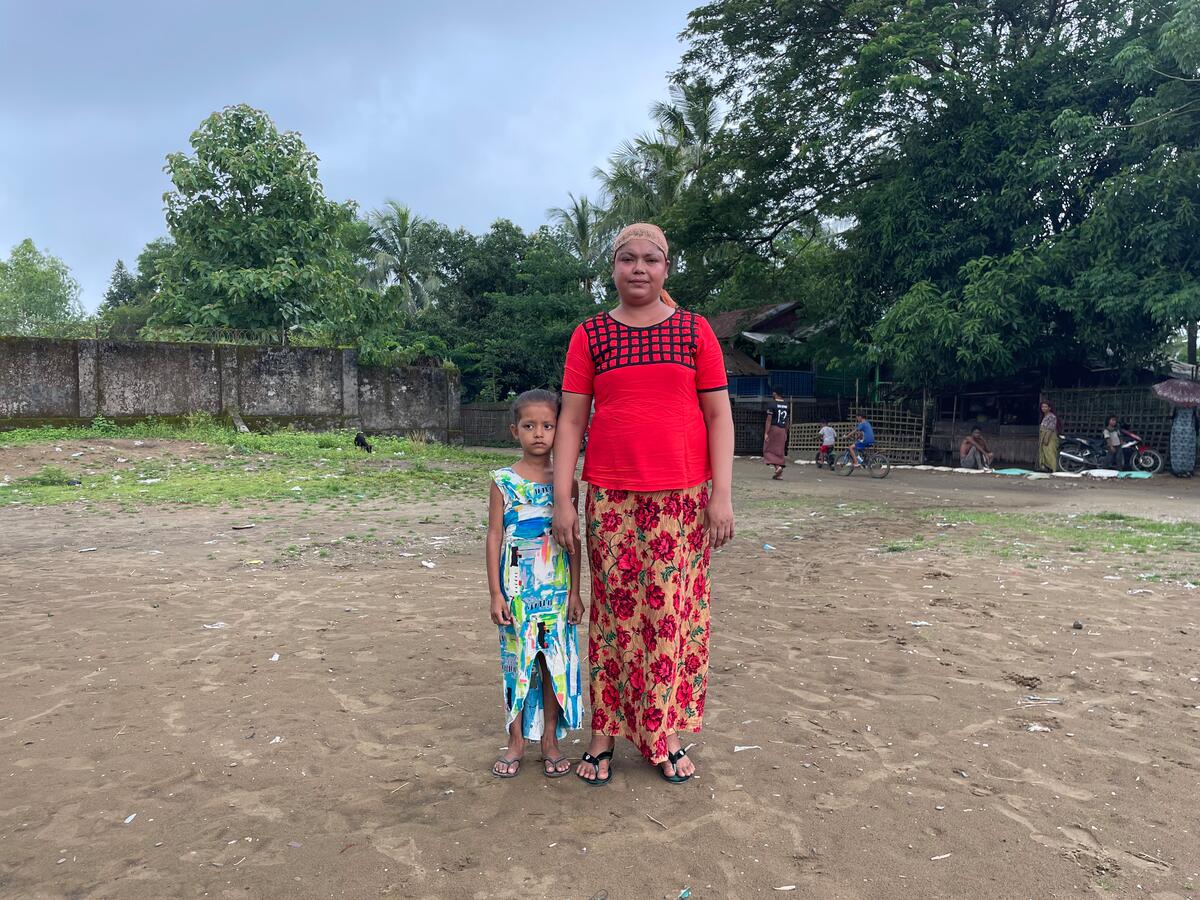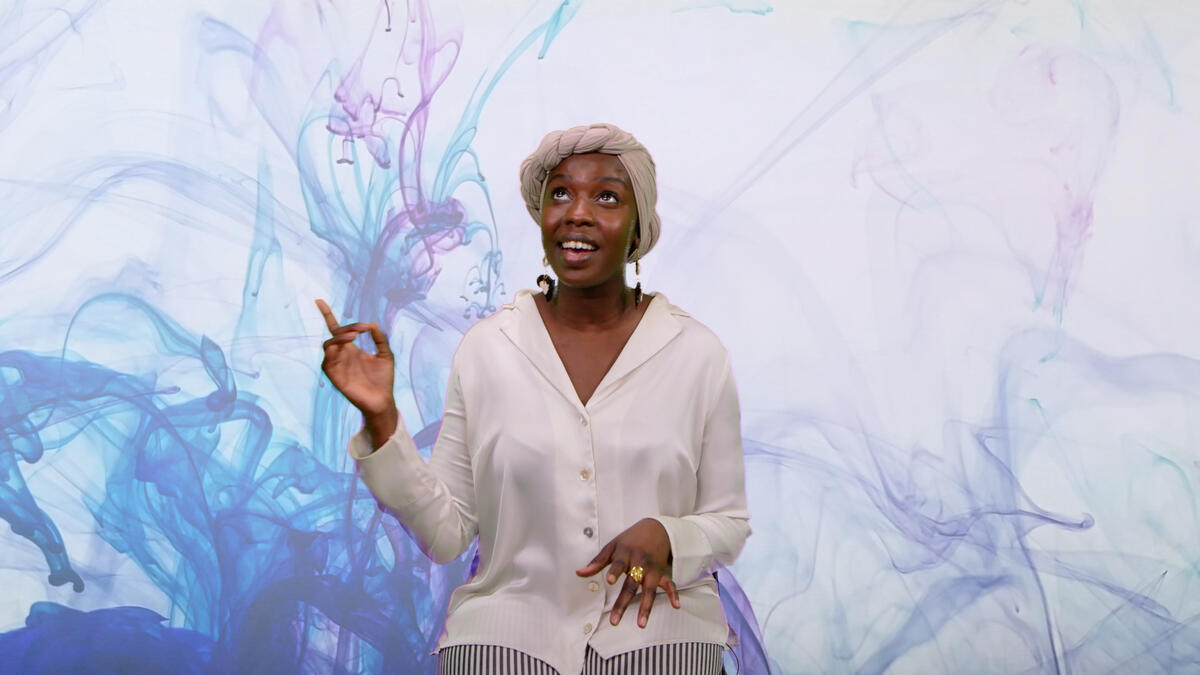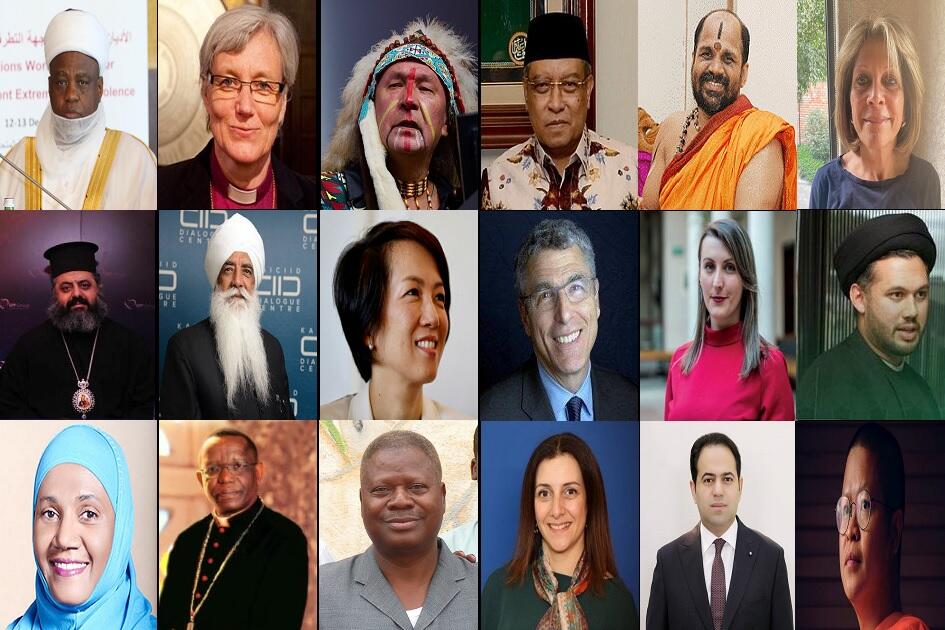Landmark Geneva conference opens with appeal for the world's forcibly displaced, stateless
Landmark Geneva conference opens with appeal for the world's forcibly displaced, stateless
GENEVA, December 7 (UNHCR) - UN High Commissioner for Refugees António Guterres on Wednesday opened the largest conference of its kind in UNHCR's 60-year history with an appeal for urgent reinforcing of the international system that deals with the world's millions of stateless people and forcibly displaced.
In his opening address to the ministerial meeting in Geneva's Palais des Nations, Guterres warned that a succession of political crises and the global economic downturn were contributing to a significantly more challenging environment for protecting people who are forced to flee their homes. And he took a swipe at those playing on public uncertainty and anxiety to promote xenophobia.
"Populist politicians and irresponsible elements of the media exploit feelings of fear and insecurity to scapegoat foreigners, to try to force the adoption of restrictive policies, and to actively spread racist and xenophobic sentiments," he said, adding that governments and social and political movements needed to be more courageous in confronting intolerance. "Refugees are not a security threat, but the first victims of insecurity."
The UN refugee agency was created in December 1950, initially as a response to displacement in Europe in the wake of World War II. The 1951 UN Refugee Convention came about a few months later and has since become one of the most widely accepted international human rights instruments - responsible for saving millions of refugee lives.
UNHCR's work has expanded, meanwhile, to include statelessness and helping some of the millions of internally displaced people. At the start of this year, the global population of refugees, asylum-seekers and people displaced internally by conflict, stood at 43.7 million people. The number of stateless people is harder to determine, but is estimated at 12 million or more.
Guterres spoke of four challenges to providing the kind of protection that the Refugee Convention aspired to: failures of states to live up to their Convention obligations; disproportionate burdens for developing countries, who host 80 per cent of the world's refugees; the millions of refugees left stranded in protracted displacement limbo; and the complicating effects of factors such as population growth, food and water insecurity. He also warned that climate change was increasingly exacerbating other drivers of forced displacement.
"A growing number of people are uprooted by natural disasters or lose their livelihoods to desertification, with climate change now found to be the key factor accelerating all other drivers of forced displacement," he said. "These persons are not truly migrants, in the sense that they did not move voluntarily. As forcibly displaced not covered by the refugee protection regime, they find themselves in a legal void. So while the nature of forced displacement is rapidly evolving, the responses available to the international community have not kept pace."
The High Commissioner called on states to look at ways to strengthen their own protection mechanisms for the displaced and stateless. He also announced a commitment by UNHCR to do more to fight sexual and gender-based violence - with particular focus on women and girls of concern to UNHCR.
"What I am asking of you here today is not a new convention, it is not an extended mandate for UNHCR," he said. "What I am asking is for all of us to assume our shared duty… To open up the way for innovative responses that will help protect people in need, benefit the social cohesion of society and strengthen global peace and security."
UNHCR's two-day ministerial conference is expected to see governments making a number of commitments to better standards of national and international protection for the forcibly displaced and stateless. Later on Wednesday, several countries are expected to formally accede to one of the statelessness conventions. A final communiqué will be issued on Thursday.
Representatives from almost 150 countries are attending, including US Secretary of State Hillary Rodham Clinton and about 70 other ministerial-level government officials. The conference is the culmination of political and diplomatic efforts over many years by UNHCR to rally renewed support and commitments for the fundamental legal treaties that enable the agency to provide protection and assistance to people worldwide.
In a year of commemorations, UNHCR has celebrated important milestones for two of those treaties - the 60th anniversary of the UN Convention relating to the Status of Refugees and the 50th anniversary of the Convention on the Reduction of Statelessness. The UN refugee agency reached its own 60th birthday last December.
For further information on this topic, please contact, in Geneva:
- Melissa Fleming on mobile +41 79 557 9122
- Adrian Edwards on mobile +41 79 557 9120
- Babar Baloch on mobile +41 79 557 9106
- Fatoumata Lejeune-Kaba on mobile +41 79 249 3483
- Andrej Mahecic on mobile +41 79 200 7617
- Sybella Wilkes on mobile +41 79 557 9138


